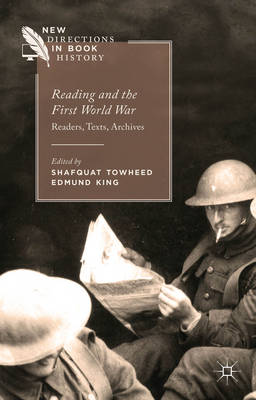New Directions in Book History
1 total work
What role did reading play in the lives of those who experienced the First World War? This volume demonstrates that reading was both the prime leisure occupation and the main means for transmitting information for combatants and civilians during the war. Ranging from ordinary soldiers to conscientious objectors and from to war artists to civilians in occupied Belgium, the readers uncovered in this volume read for a multitude of reasons. Letters and books sent from home could bring soldiers in touch with family members and memories of lives lived before the war. Newspapers and trench journals helped maintain morale in the trenches and communicated war news and propaganda to civilian audiences. Bringing together respected specialists and emerging scholars, Reading and the First World War reveals the diversity of reading practices at the time and the central importance of reading in the experience of conflict, at the front and at home.
